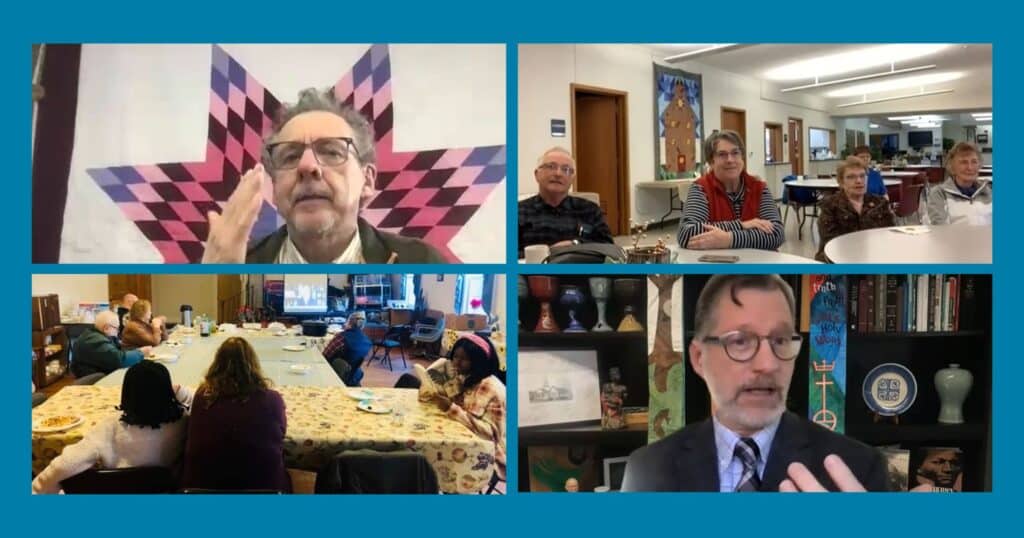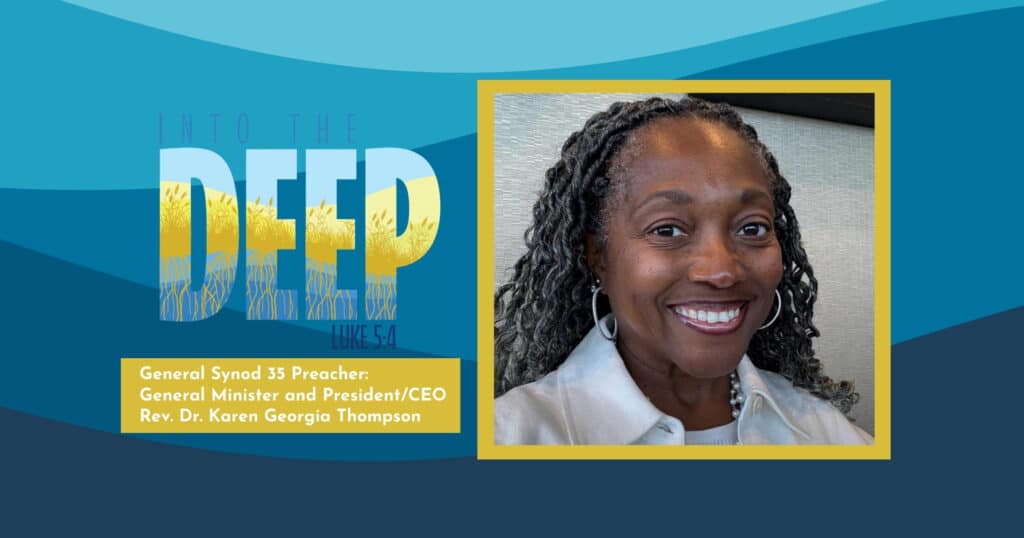‘You matter’: UCC leaders spotlight small, rural congregations during first-ever national gathering
The ministry of small congregations in rural towns is just as vital to their communities as those of larger ones in bigger cities.
United Church of Christ General Minister and President, the Rev. John Dorhauer, emphasized that point again and again during the first-ever Virtual National Gathering of UCC Rural/Small Town Churches and Ministries, “Nourishing the Seeds of Faith,” held online Feb. 9-11.
“It really doesn’t matter where you are or who you are or how big you are,” Dorhauer said during a keynote address during the event’s final day. “If you live fully into the call of the Gospel, you are where you need to be, you are who you need to be and you can make the difference that God needs in the world.”
During a town hall session later Saturday, he explained that the distillation of Christian ministry to its most essential part — spreading the good news — is applicable to all UCC churches and organizations. This mission, Dorhauer noted, supersedes everything else.
“My responsibility — and I think, collectively, our responsibility — is to preserve the mission for which the Holy Spirit birthed us in the first place,” he said. “… I get very basic: the great commandment was ‘Go, therefore, and tell the good news.’ That’s it. That’s our responsibility.
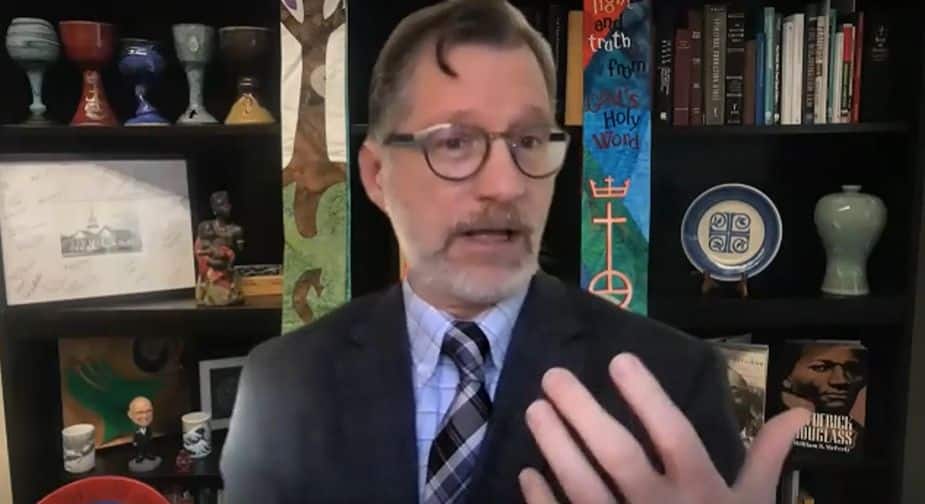
“Whether we look at ourselves as an institution, whether we look at ourselves as a local congregation, whether we look at ourselves as a conference of churches as a part of an institution, the question ultimately is: how does your organization, your institution, your congregation, align itself in such a way that you can undertake the mission that you were called to do and tell the good news?”
Safe havens
Focusing on that mission allows faith communities to let go of worries about scarcity and diminishing populations, Dorhauer asserted.
“I want us to abandon the notion, the myth that bigger means better and that the determination of our success is how much we’ve grown this year over last year,” he said. “We are measuring the wrong things, we are noticing the wrong things and, in doing so, we can fail to notice the beauty that happens just because we are who we are right now.”
Dorhauer himself recalled examples from his early days as a local church pastor, when he served congregations in small Missouri towns. In particular, he remembered one community, densely populated with churches, in the “buckle of the Bible Belt,” that was unsafe for LGBTQ+ citizens.
“What became obvious to us was that there were closeted members of that community who were being terrorized by the (other) Christian churches in town,” he said. “And our church decided they weren’t going to tolerate that.”
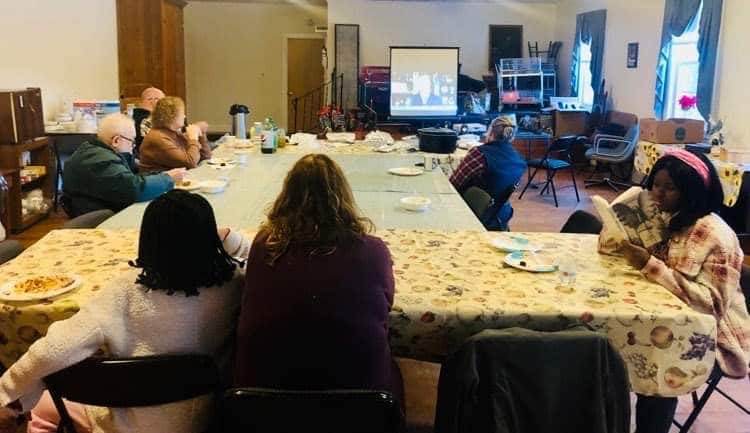
Because of this and other efforts by the congregation to welcome community members who were not well received at other churches, Dorhauer’s church became a vital haven of refuge.
“In all of those years, this church kept repeating over and over again, ‘You’re safe here, and you’re welcome here,’” he said.
This, he emphasized, is the heart of the church’s true mission.
‘Nurture the church’
Another UCC National Officer shared memories of her time as a small church pastor.
The Rev. Traci Blackmon, Associate General Minister, preached during the gathering’s opening worship Feb. 9.
“This conference and this moment is very important to me, because my ministry did not start in large places,” she said. “It started in a small rural church in Millersburg, Missouri, 125 miles from my home, that I drove to at least once a week and sometimes more times a week to minister to a congregation whose total size — if no one was sick or absent — was nine people. … To this day, I stay connected to those families in that church in that space.”
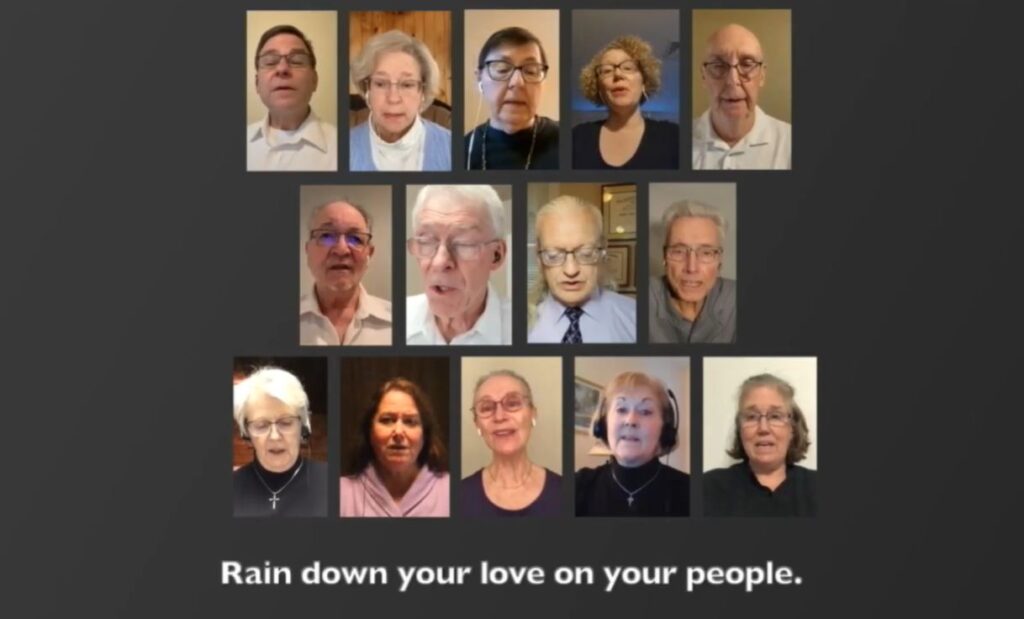
In reflecting on the event’s thematic scripture — Isaiah 55:10-11 — Blackmon highlighted the central message of the passage: “Just as the earth yields nothing without rain, the church yields nothing without the word.”
In the way that the ancient prophet was speaking to people in exile, mourning the decimation of their community, Blackmon connected this message to modern congregations.
“Sometimes, I sense, my friends, the church needs just such a word as the people of Isaiah’s day: a word to remind us that God is not impressed by our membership numbers or the number of views we receive on our virtual platforms or even how much money we have in the bank,” she said. “These things are not the water that nourish the ground.
“The question must always be: are we faithful to what God intends? Do we feed the hungry? Do we clothe the naked? Do we care for the sick and provide comfort for the lonely? … These are the things that nurture the church.”
‘Lifeblood of the UCC’
The three-day gathering also featured other guest preachers and keynote speakers, including:
- Jonathan LeMaster-Smith, a United Methodist-affiliated professor with expertise in studying rural ministry
- The Rev. George Miller, pastor of Emmanuel UCC in Sebring, Fla.
- The Rev. Lorraine Ceniceros, Conference Minister of the Kansas-Oklahoma Conference
The event was presented by the new Coalition for UCC Rural Churches and Ministries and the UCC Justice and Local Church Ministries’ Faith INFO team. It was co-hosted by the Rev. Roberto Ochoa, UCC minister for ethnic inclusion and congregational support for rural and small churches; the Rev. Marc Stewart, Conference Minister of the Montana-Northern Wyoming Conference; and the Rev. Amelia Price, pastor of St. Paul’s Verdilla UCC in Selinsgrove, Pa.
Ochoa explained that one of the coalition’s very first goals was to hold a national gathering of rural and small town UCC churches.
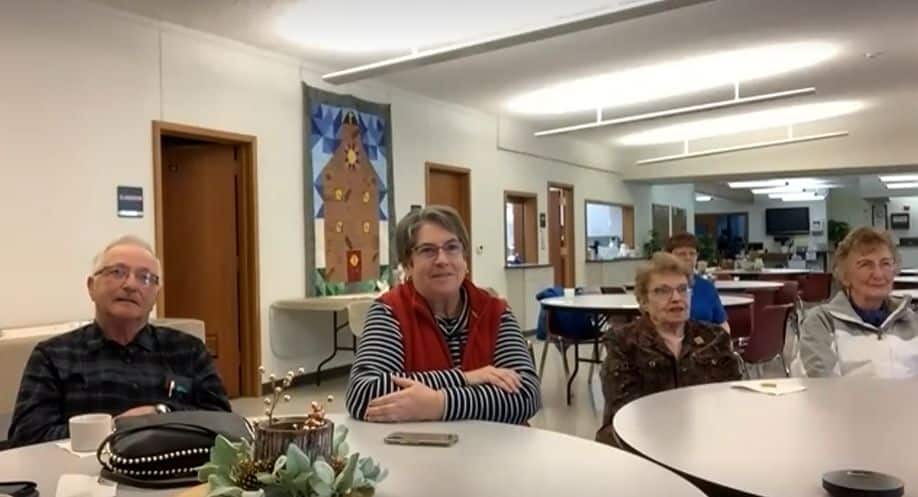
“I believe all the attendees came away from the gathering with a renewed sense of valued self-esteem, mission and purpose as rural/small town UCC churches,” he said.
“The lifeblood of the UCC today resides in local, small and rural churches,” Price said. “… There is a sense in rural areas where we are forgotten or ignored, the churches have been discounted and disconnected. That is very slowly changing. But that is happening on individual people connections at this point.
“It will take more than one very successful coalition gathering to continue bringing the message of the importance of small and rural churches to the life of the United Church of Christ.”
Energized by gathering
The Rev. Lindy Howe, pastor of Oxford Congregational Church in Oxford, Maine, said that she and other members of her congregation were energized by Dorhauer and the other speakers, as well as the witness of their fellow UCC churches.
“We were all deeply touched by the stories of rural and small town churches that we could relate to so vividly — right to the checking the fence line in a storm so the cows don’t get out,” Howe said. “We were encouraged by the words of so many to not look at us as diminishing but as being right where God wants us to be.”
Howe also was amused by an anecdote from Dorhauer about church consultant Lyle Schaller. Dorhauer asked attendees what number Schaller said was the ideal church membership size.
The answer? 17.

“With 17 people in church, you know exactly who everybody is and how everybody’s doing, and if they’re not there one Sunday, you know that it’s your responsibility to find out why and know what’s going on in their life and take care of them,” Dorhauer said.
“We were greatly encouraged that 17 is the magic number at worship,” Howe said. “We giggled that we were one short (the next Sunday). We loved that instead of measuring ourselves by the number of Sunday worshipers, we might consider how our community would be impacted if we closed our doors. This gave us the opportunity to see how much we are being the church to the Oxford, Maine-area.
“We all cried, and we all laughed,” she added. “This was a church-changer for us.”
‘Small is beautiful’
If there was a clear theme from the event, it was that congregations of all sizes matter deeply to the communities they love and support.
Dorhauer said he’s been repeating a specific line over the last several years: “The Holy Spirit envisions a future in which you matter.”
“And one of the reasons that I repeat that,” he said, “is not just because I believe it to be true, but I want us — and this is especially relevant and important in the context of time that we’re sharing with one another as small churches and rural churches — I want us to move away from what has often been for us a narrative of decline and diminishment … that can lead quickly to despair, to wringing our hands and wondering, ‘What are we doing wrong that things aren’t any better than they are?’ and focus instead on the presumption that we are exactly who we need to be because this is what God is asking us to be.”
And what God is asking congregations to be doesn’t depend on their size. Christianity itself, Dorhauer noted, started when “two or three gathered” in their homes.
But then again, he pondered, maybe sometimes size is relevant. “You know what? Size does matter,” Dorhauer said. “And small is beautiful.”
Content on ucc.org is copyrighted by the National Setting of the United Church of Christ and may be only shared according to the guidelines outlined here.
Related News
2025 Climate Hope Art Contest award winners plant seeds of hope
The celebration of the 2025 Climate Hope Art Contest for children and youth of the United...
Read More‘Not your typical webinar’: Womxn 2 Womxn series aims to foster community
As the church works towards gathering this summer at General Synod 35 in Kansas City,...
Read MoreThompson to bring a ‘prophetic and pastoral’ message to Synod: ‘We are not all the same, but still one body’
On Sunday, July 13, the Rev. Dr. Karen Georgia Thompson will take the stage at the 35th...
Read More
